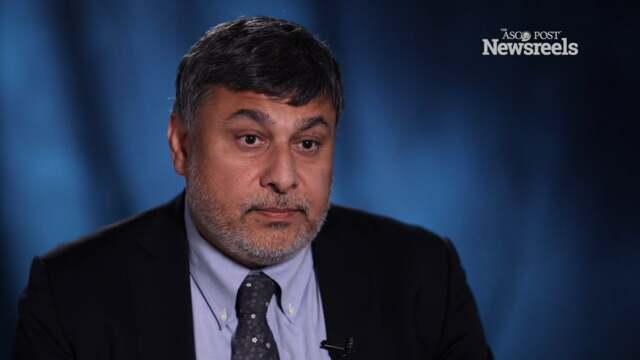Everett E. Vokes, MD, on Controversies in Stage IIIA Disease
2015 IASLC World Conference on Lung Cancer
Everett E. Vokes, MD, of the University of Chicago, summarizes expert views on treating stage IIIA disease: decision-making in selecting patients for surgery; multiple-modality choices; and using induction chemotherapy (Abstract ED10).
Tony Mok, MD, and Fred R. Hirsch, MD, PhD
Tony Mok, MD, of The Chinese University of Hong Kong, and Fred R. Hirsch, MD, PhD, of University of Colorado Health Science Center discuss the highlights of the featured plenary session, which included the conference’s top four abstracts (Abstract PLEN04).
Naiyer A. Rizvi, MD
Naiyer A. Rizvi, MD, of Columbia University, offers an update on immune checkpoint inhibitors in non–small cell lung cancer: what’s new and what’s next.
James R. Jett, MD
James R. Jett, MD, of National Jewish Health, discusses his study of the early CDT-Lung biomarker. His hypothesis: When used in combination with low-dose CT in screening of a high-risk population, this biomarker would increase the detection of early-stage lung cancer (Abstract MINI 12.11).
Pasi A. Jänne, MD, PhD
Pasi A. Jänne, MD, PhD, of Dana-Farber Cancer Institute, summarizes a workshop he conducted on the state of the art in next-generation sequencing of lung cancer (Abstract WS 01.07).
William D. Travis, MD
William D. Travis, MD, of Memorial Sloan Kettering Cancer Center, gives an update on the WHO classification, which is crucial for optimal personalized treatment of lung cancer patients (Abstract PLEN02.01).





